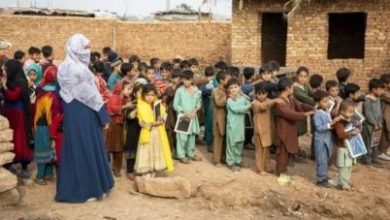Pakistan: Politics of Amendments
Politics of Amendments is being played for Power, Not People

Until power truly comes from the people, no constitution, no amendment, no award, no court will ever protect the masses. They will protect only those who have always been protected.
By Noor Muhammad Marri Advocate | Islamabad
Amendments… constitutions… acts… governments celebrate them as national achievements, but inside these documents the public finds nothing. In a colonial or neo-colonial order, the constitution is not a social contract — it is a political decoration. General Zia said it openly: “this is a piece of paper, anytime I can tear it.” And Pakistan’s history proves him right. From the very first day of the state, no constitution — interim, 1956, 1962, or 1973 — ever stood in the way of power. All of them came, were praised, were broken, and were buried by those who controlled Karachi, Rawalpindi, and the cantonments.
What is a constitution? It is not just a written document; it is the supreme framework that governs the internal and external affairs of a state. But a constitution is never produced in a vacuum. It grows out of history, culture, ideology, political struggles, social movements, and economic realities. It reflects the will of a people and the evolution of a nation. Every constitution in the world stands on a long chain of pre-existing rules, precedents, and lived experiences. But our constitution never had such foundations. It was not the product of a social contract, not the outcome of popular movements, not born from economic justice or political equality. It was stitched, rewritten, suspended, revived, and reshaped by those who already controlled the structure of power. Instead of reflecting society, it reflected the interests of those who supervised society from above. That is why our constitution remained alien to the lived reality of the people — because the people never created it, never owned it, and were never allowed to define its soul.
People forget that our constitution begins with a preamble, which is not even an original democratic statement. It is the Objective Resolution — passed in 1949. And here lies the real fracture: was the Constituent Assembly authorized to pass such a resolution? No. It was a continuation of the colonial system, not a body created by popular vote. It had no mandate to define the ideological soul of a new nation. Yet it passed a resolution that bound future constitutions to a vague ideological command, giving unlimited interpretive power to the state elite. It was not a people’s charter; it was a political tool.
The preamble promises democracy, justice, federalism, and supremacy of public will — but every day these principles are shattered. If judicial review has any meaning, the Supreme Court should declare such violations null and void. But in Pakistan, the Supreme Court never protected the preamble. Instead, it sanctified the Objective Resolution further, especially under Zia, making it a substantive part of the constitution. Instead of reviewing the illegality, the court became its defender.
And this reveals the core truth: the Supreme Court has never stood on the side of the people. Its first crime was inventing the Doctrine of Necessity — a legal excuse to bless martial law. With this doctrine, the court said that coups are legal if the general promises elections. This was not law; it was surrender. And this surrender continued: Ayub in 1958, Zia in 1977, and Musharraf in 1999. Judges took oath under PCOs. Judges validated coups. Judges dissolved assemblies. Judges restored assemblies. Always according to someone else’s timetable.
People now mourn the “death” of the Supreme Court, but when did it live for the masses? It lived only for those who held real power.
People also celebrate amendments. They praise the 1973 Constitution. But what was its fate? Within six months of its passing, Bhutto himself had twisted and flooded it. Fundamental rights were suspended, opposition crushed, and the Balochistan Assembly dismissed without constitutional grounds. When the military operation began in Balochistan, where was the constitution? Silent. Dead. Helpless.
Same with the 18th Amendment. It was celebrated as a democratic victory. But what did the public gain? Ask Sindh: where is the NFC money? Where are the utilization reports? What departments improved? Which districts developed? The truth is harsh — power devolved, but corruption also devolved. Ministers and feudal lords warmed their pockets, but people remained exactly where they were.
Now we see a drama of amendments and judicial fireworks. But all of this exists to deceive. To create an illusion of democracy. To show the world that the constitution reigns supreme, while in reality power flows from somewhere else.
This constitutional theatre is nothing new. The British used the same tactic. When nationalist movements rose before World War I, and criticism spread globally, the British created political organizations like Congress and Muslim League to showcase freedom. They held elections where responsibility was given to local governments but power stayed with the Viceroy. Acts were introduced, councils formed, constitutions drafted — all as a shield to protect imperial rule. The illusion of democracy was presented to the world while true power remained elsewhere.
That same colonial structure lives today. Only the actors have changed, the stage remains the same.
The constitution, the amendments, the courts — they are cosmetic decoration. They protect the image, not the people. The preamble is violated every day, the social contract never existed, the people were never consulted, and the judiciary never intervened.
Until power truly comes from the people, no constitution, no amendment, no award, no court will ever protect the masses. They will protect only those who have always been protected.
Read: Power Struggle, Not People’s Cause
__________________
 Noor Muhammad Marri is an Advocate & Mediator, based in Islamabad.
Noor Muhammad Marri is an Advocate & Mediator, based in Islamabad.




